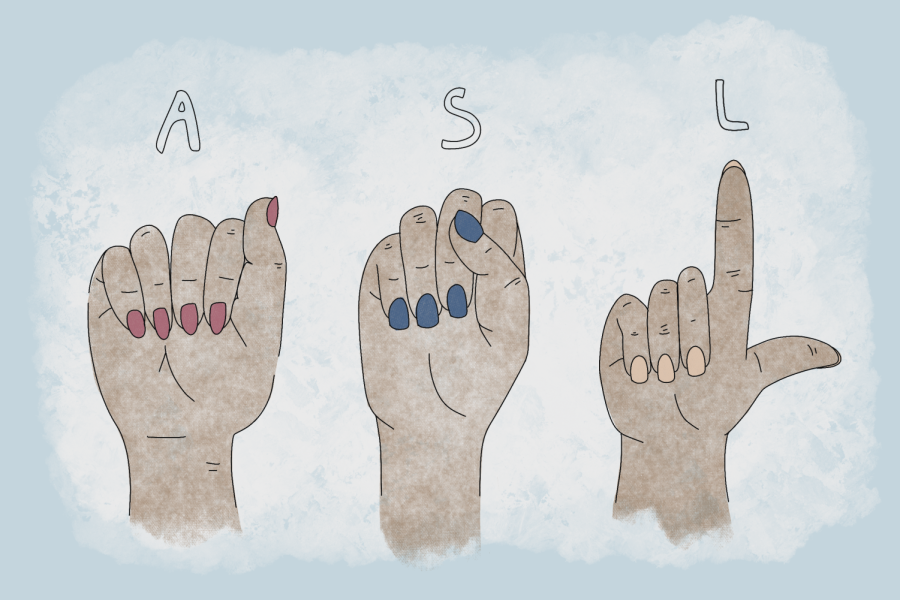Q&A: Evanston Inclusion Coordinator Ryan Dollins talks sign language interpretation and accessibility in city meetings
Meher Yeda/Daily Senior Staffer
Evanston provides American Sign Language interpreters upon request at civic meetings and other city-sponsored events, but this service has rarely been used.
November 8, 2021
Evanston provides American Sign Language interpreters upon request at civic meetings and other city-sponsored events, but this service has rarely been used. Interpreters, who are part of the city’s compliance with the Americans with Disabilities Act, are available for residents who are d/Deaf and hard of hearing. The city has received only three ADA service requests in 2021, none of which have been for interpretation, according to Communications Manager Patrick Deignan.
Ryan Dollins has been Evanston’s Special Recreation program coordinator for inclusion in the Parks, Recreation and Community Services Department since 2018. Most ADA service requests, including those for interpreters, land on Dollins’ desk. The Daily spoke with Dollins about the process of getting an ASL interpreter, his responsibilities in processing accessibility requests and the city’s upcoming ADA open house.
This interview has been edited for length and clarity.
The Daily: How often do you receive requests for interpreters?
Dollins: One has never come across my desk in my three years here. From a day-to-day perspective, all types of ADA requests are a very small part of my responsibilities. But when it does come across, it becomes a top priority of mine because it’s a 48-hour turnaround.
The Daily: What types of meetings does Evanston provide ASL interpreters for?
Dollins: It would be for all the meetings that we have here at the city for different programs. It’s done on a case-by-case basis, as long as it’s within the timeframe that we have written on our website. We need two business days to process the request.
The Daily: What happens when an Evanston resident requests an interpreter at a city event?
Dollins: You would just have to (contact) 311, the city’s call center, and the process would go through there. 311 would take that request and then give it to the appropriate person. It would be either myself or facilities management. I would work through trying to find somebody and get somebody at the meeting. If that doesn’t work out, then we would definitely talk about doing some type of closed captioning so people can access that as well. A lot of the meetings recently have been online. So if there was a request, we would make sure that closed captioning was taken care of.
The Daily: Is there a certain place you would go to find a qualified ASL interpreter?
Dollins: There are a few places that I would look. There’s the Illinois Deaf and Hard of Hearing Commission, where there is a listing of certified interpreters. We have a language hotline that we could contact as well.
The Daily: What’s the most important thing Evanston residents should know about accessing meetings for residents who are hard of hearing?
Dollins: We are planning our first ADA open house for the city’s ADA Transition Plan. There’s a community open house that’s on Thursday, Nov. 18, from 4 to 7 p.m. at the Levy Senior Center. We want to provide information about the plan and gather feedback from the community. Go to evanstonaccessibility.com, which outlines a lot of the things that are going to be going on throughout the ADA Transition Plan, including a couple of open houses so that we can get input from the community.
Email: saulpink2025@u.northwestern.edu
Twitter: @saullpink
Related Stories:
— Altura Solutions LLC to update Evanston’s ADA accessibility plan by 2022
— Community members reflect on ways accessibility impacts homeless services



